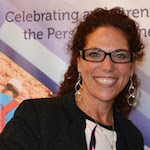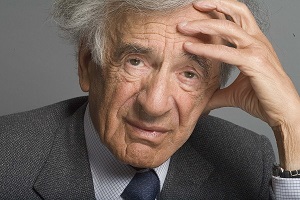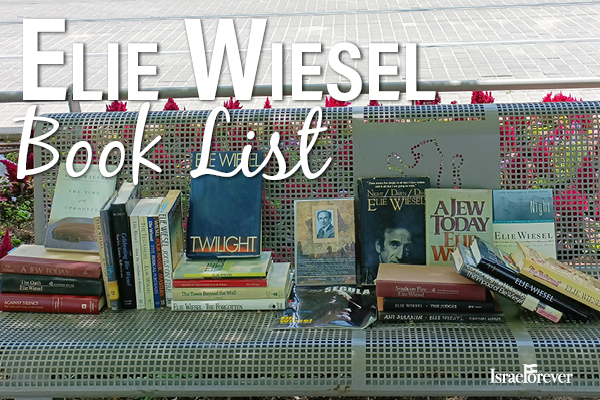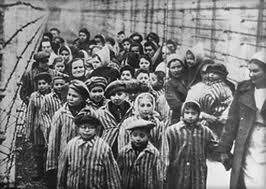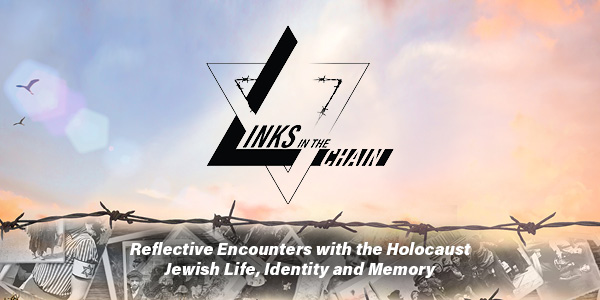The Value of Night
Elie Wiesel’s infamous memoir Night about his experience during the Holocaust used to dominate reading lists and curriculum. Today, fictional, feel-good or “easier” materials are becoming increasingly popular. In fact, many educators are having to actively fight for this book to be included, and need help outlining why Wiesel’s book is worthy of being continuously read, taught and analyzed.
Night became a popular book of study about the Holocaust because of Wiesel's unique perspective and literary expression of a fundamental experience for a human being under extreme circumstances. In order to help others grasp it, sometimes you need to break it down into real-time specifics. Sad as it may be, you need to prove the WHY.
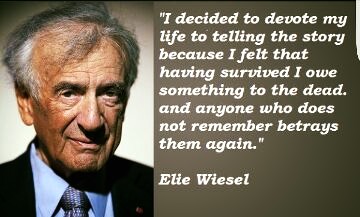
This is but one of the many battles we have to face in our fight for the perseverance of memory of the Holocaust and Jewish life. When I was approached by Sheryl Ochayon, Program Director for Echoes & Reflections at Yad Vashem, who found herself aiding a teacher in exactly this predicament, I was honored to be able to help.
There are so many who are facing this challenge, I thought to share our exchange which may elucidate for others how they, too, can keep this fundamental book on the radar of young and old alike.
Why Night?
This concise book enables teens to explore the widest range of realities during the Holocaust experience. The victims, the perpetrators and the bystanders are all present in this personal story of a 15-year-old boy in a way that many other books about the Holocaust simply cannot do in the shortened span of time allotted for study on the topic.
The amazing thing about Elie's writing is his ability to translate the most incredible details into a fluid memory of the experience that the young reader can follow easily. For some, sharing the same age makes the reading experience even more meaningful. It allows them to bridge time and space, to try and make some small effort to understand the impossible realities that another young teen had to endure. Elie's questions become the youth's questions - about themselves, about the world, about human behavior and how we relate to history.
Night has the potential to be an awakening for any reader - regardless of whether they are Jewish. And yet it also has the ability to introduce some learners to what a Jew is, how they lived and the faith and identity they embraced even in death. And it has the ability to speak to the hearts of anyone wanting to learn more about the impact of hate, hunger, murder and memory.
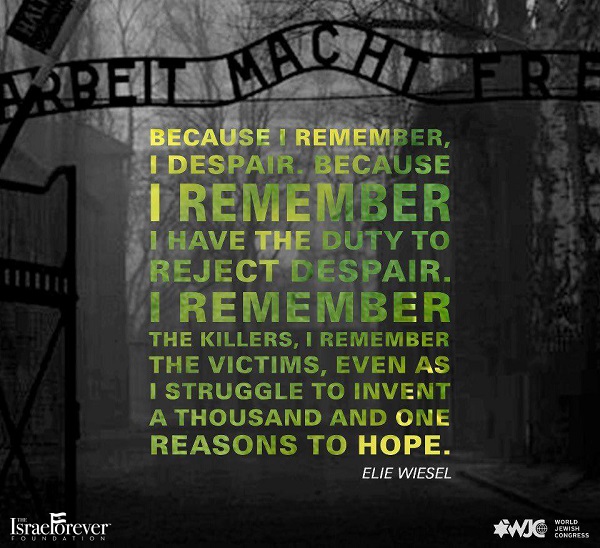
There are many books about the Holocaust - no one should ever disrespect the importance of having thousands of memories and experiences captured in writing. But facing the challenges of today's generation, from shortened attention span to desensitization on some matters and increased sensitization on others, not teaching Night is a missed opportunity. Night in particular opens the learners minds in dramatic and immeasurable ways within the small frame of time one has to make sure an impact. Hopefully it also encourages them to want to learn more about the Holocaust in their life.
Here is one example from a student of mine from Egypt, raised all her life learning "the Holocaust was a good thing because lots of Jews were killed":
The human connection I felt that night with every word Elie wrote touched me in every way possible. Suddenly his struggles in the ghetto and in the camp became mine, his feelings about his father mixed with my own feelings about the loss of my own father. I could feel the pain and agony inside of my heart for losing one member of my family, and I was overwhelmed to think about his feelings throughout this horrible time, and the feeling of every Jewish person that went through the same or worse.
In history, we should learn about the historical event, but in English we should delve into how the language is used to express even the most tragic and painful and confusion and indescribable of situations. Of course the hope would be that there might be a bit of history learned in the process - the timeline of events for example can be helpful, and can also be a tool for teaching teens about the structure of the human experience in comparison with the historical experience. One of a myriad of ways that Night is a unique contribution to the literature of memory that we can all learn from.
Why the Holocaust?
Fellow educators might say, “We do not have issues with Holocaust denial or ignorance of the Holocaust here.” Or that it is believed teaching the Holocaust silenced stories of other oppressed groups in our current world. These excuses and false deterrents make it even more important that people - whether educators, students, parents or peers, should be able to express succinctly and with accuracy. And you will meet a lot of resistance from the various reasons you already shared - it isn't new, it isn't progressive, it's only Jews.
Night is never meant to be taught in isolation. It is to be taught as its own chapter in history while also lending itself to discuss and deconstruct other chapters of inhumanity and injustice in our world--of which there are unfortunately many.
To say teaching the Holocaust oppresses others, or that it belittles the experience of another group either under the Nazis or elsewhere in time is ignorant and short-sighted. Genocides occur time and again throughout history, but few invite us to delve into the depths of human experience in the complex manner that the Holocaust and the memories of its victims and survivors allow. The Holocaust in particular forces people to analyze human choice, response and action which makes it pertinent that we do not at all minimize the reality, the brutality and the horror of what transpired.
With ALL due respect to Frankl and his very powerful Man's Search for Meaning, to encourage today's youth to explore more than just the generalized, universal message we have the benefit of historical fact and human memory to help us understand how the events came to take place and what human beings could have or should have done differently. His lesson of survival, as well as that of Gerta and others whose books are monumental testimony to the lived experience, will unfortunately not translate into a learned experience as easily.

Wiesel's stature as a human rights activist is yet another reason that you can encourage your school to keep Night in the curriculum. Focus on his contributions to all mankind, how the experience translates into a call for action for the rest of his life. His Bearing Witness speech at the United Nations is a wonderful complement to the closing experience of reading the book and for which I have actually crafted a very meaningful engagement activity you might like as well.
There is so much more I could write, and I hope this is of help to you. I continue to hear of more schools taking Night out of their curriculum, meeting more and more students who have no idea who is Elie Wiesel. I am honored to assist you however I can so that we can carry on his legacy as is fitting.
Especially now with the the currency of antisemitism on the rise, I commend every educator, parents or person who delves into the transmission of Holocaust memory out there on your commitment. As always, I hope that the ideas I share somehow aide you in your effort to keep Night as a part of your school's curriculum, so that this powerful book remains relevant for generations to come and the Holocaust as an element of deep learning that it deserves.
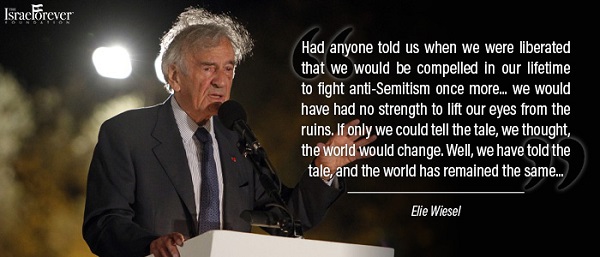
It is voices like yours that the souls of the millions are counting on.
Sincerely, Elana Heideman
DISCUSSION QUESTIONS:
- When did you first read Night?
- How did it affect you?
- How did it help you understand the Holocaust?
- What part of young Eliezer's experience affected you the most?
- Why would you recommend Night as a fundamental piece of historical literature every generation should read?
Recommended for you:
What will become of the memories?
Remember, reflect, and together we will carry the past into the future
About the Author
